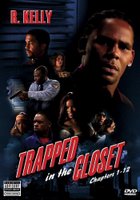
A friend told me that my post last week was lame, which is cool because it means he read it, and also not cool because he was right. So I'm going to try this week to make this post not lame for my friend (who is normally, pretty lame), and try and write about something more important. Sleep. I am thinking about sleep because I am tired, but also because of a few instances recently that sparked some thought on sleep and music.
The first instance involved being mesmerized by a baby in my family being danced to sleep listening to various indie-pop albums of mine. The effect of watching this baby fall asleep was itself soporific, almost dreamy. I assume different babies fall asleep to different music, whether that's the baby's taste or the parents, and it was odd that this baby would find my upbeat Clap Your Hands Say Yeah record so sleepy. I was told that it's the repetitious rhythm that does it. Babies find solace in that numbing uniformity of a bounce, or a vibration. Ah, vibration. But this makes me wonder if the baby's ear responds better to the bass - low frequencies with a lot of resonance (because they actually make your body vibrate more) or maybe to the static mid range of a pop song (the warm keyboards, strummed patterns on guitar) or is it the human voice in a pop song, the memory of mom or dad talking (or singing) a child to sleep? This is a question for neurology/developmental psychologists, to be sure, but its also relevant to people making music. What sounds induce sleep?
On my birthday, I went to a spa and had a massage. As tradition goes, massages are accompanied by the most asinine new age jazz/pseudo-pan asian folk bullshit you could imagine. Some Zen dickhead in the 70's decided that the only way to relax was to fetishize asia, ruin jazz, and make all of Southern California believe that Buddhism was about spending too much money to get a rubdown. Regardless, I love massages, but I spend the whole time deconstructing this embarrassing music, or just laughing at it (on the inside). This music does not make me sleep, but it does relax a lot of other people. And maybe the dream of asia, or of a soprano saxophonist with long flowing hair who wears only fine silk and linen is a cultural dream more than a musical one. It's not about what the music really sounds like, its just a sign for the touristic need to get away from the rhythms and images of American waking life.
I think about the long-standing notion of music as trance-enducing as problematic. Good music invigorates, it makes me feel alive and aware, or hyper-aware. It certainly is an altered state, which is where the hypothetical relationship with dreams enters the scene. With dreams you have also the ability to imply night, death, insanity, obsession, sex etc. Orpheus is the perfect symbol of this; one of the possible roots of his name literally means darkness. And Eurydice is that symbol of the eternal dream. Her failed passage out of the underworld hints at our fear that the dream of music is so unreal, so invisible, that it must be seen to be believed; which was her downfall. Ironically, I think this disbelief is what unhinges music from its viscerally real presence and allows you to drift away down the sleep river, to snore in concerts, or whatever. Steve Reich is very specific about making sure that the word trance is used without reference to sleepiness or to lazy listening, he wants his music to be as vital as any. Some minimalist or post-minimalist composers push their luck though, they want attention, but its just so easy to feel like a sleepy baby letting the sounds wash over you, rather than pierce through you, which is how I like to listen and how I would like to be heard.
The problem I have though, is that I started believing deeply in Cageian aesthetics a while ago, and sometimes I have trouble falling asleep because I listen to ambient noises as if they were pieces of music. I don't think that's problem most people have, especially babies, but it's a weird reversal of the question. By in large, I think most people who are aurally sensitive while falling asleep use the same techniques that they always have done, mindless repetition. Repetition of the kind that those ambient noise machines create (the waves, babbling brooks, chirping birds etc) gives me the creeps. Its like disembodied nature, nature on loop, it makes me think of a manufactured future, life on repeat, the machination of sound along with everything else. I'd like to think that babies are more sophisticated than we give them credit for. That their ear is actually interested in the unfolding change of a piece of music, and not its stasis, and that sleep arrives as a result of enchantment not entrancement.
'till next sunday,
pb







